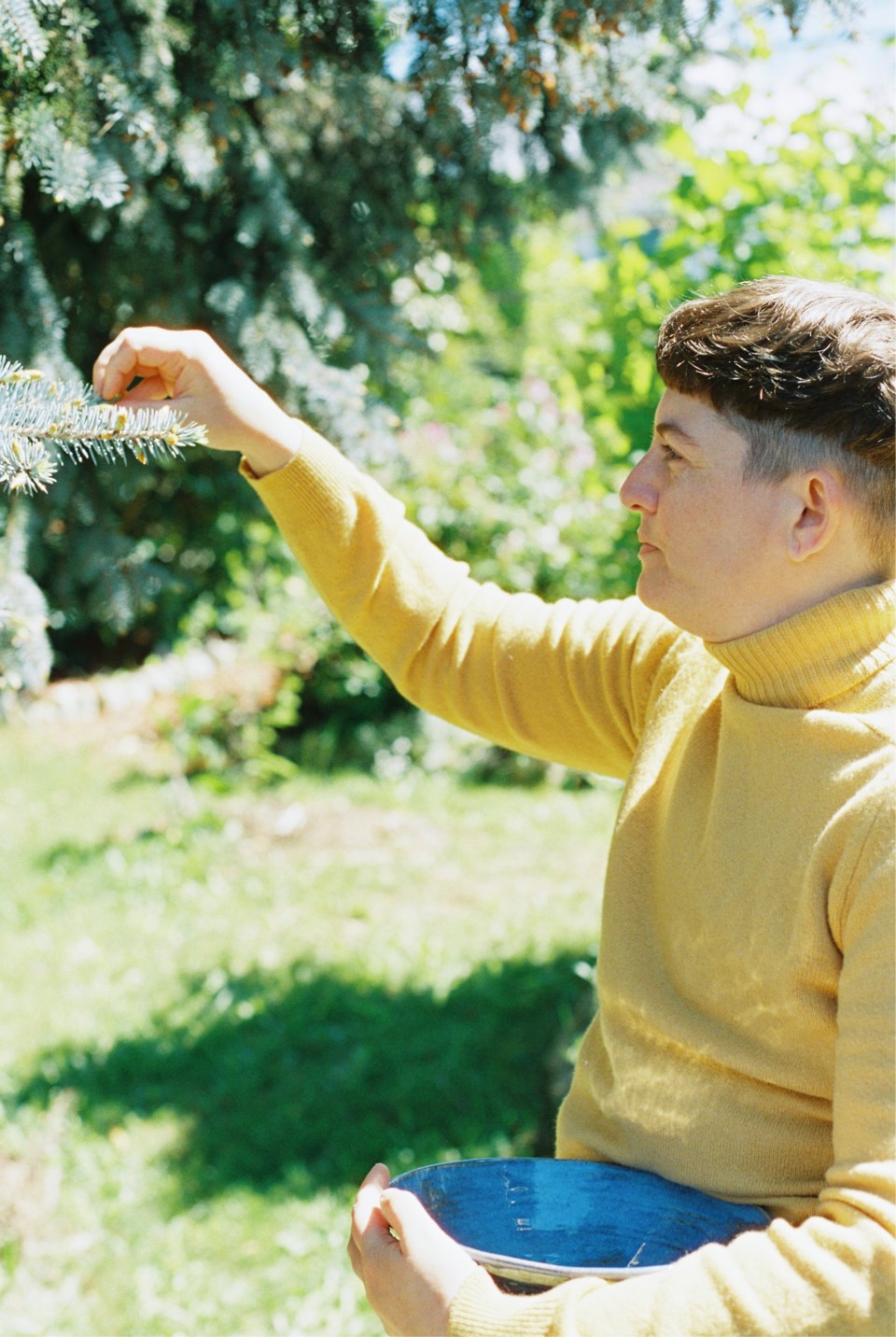The fall season is upon the west coast, and thoughts of squash soups, hearty home-cooked meals and sharing in the bounty of the harvest might be close to people's minds.
Author andrea bennett's newest book, a series of essays, titled, Hearty: On Cooking, Eating, and Growing Food for Pleasure and Subsistence, fits right into the cozy feeling that autumn brings.
Food and relationships
bennett's essays are personal and unique, and at the same time relatable to anyone who has grown up in an urban setting on the west coast of BC. Each chapter/essay tackles a time period in bennett's life, intertwined with broader questions about North American food systems, how we fit in and how we could make [food systems] more equitable for people and the environment.
"I grew up in a fairly lower-middle income household, and I started working fairly young," said bennett. "I worked in restaurants for a decade."
Family recipes
Hearty is about food, eating and growing, with family recipes and a theme that's most important to bennett: how making food for one another shows care for one another.
"I started mostly gardening in my backyard, just myself and my partner and my child, who was about 13 months old when we moved here [2019]," said bennett. "I had been doing everything pretty much alone and by watching videos online."
Learning from others
That was at the height of the COVID-19 pandemic, when most people were told to stay in place, at home. Post-restrictions, bennett started volunteering at Blueberry Commons to connect with people and learn more about farming and growing from real people and not just YouTube.
"I did learn so much from people like Charles Dowding, who's an English gardening farming fellow; he's really into no dig [farming], like a no till movement," said bennett. "I learned so much, but I realized that I'd started to see my garden as another way to strive for perfection."
bennett said they had a moment, standing in their greenhouse looking at peppers that had developed soft spots, and feeling defeat and anger at not producing a perfect pepper.
"I realized that I needed to seek out some community around town," said bennett. "So I started volunteering, and it was really great."
Hearty tackles many complex questions about our relationship with food, but also has many comedic childhood moments with family, relationships through bennett's journey working in the food industry, cooking for a young child, or wondering what to do with a 50-pound bag of potatoes. The essay, Tomato Chutney, Part I: Reviving my Nana's Recipe, is an homage to their nana's calm and unwavering attention, not only toward her grandchild, but toward making tomato chutney. This family recipe is included for readers, as is a vegetarian shepherd’s pie, a lentil loaf, fermented hot sauce and plenty more recipes throughout the book.
Foodie culture
"Our food-writing culture often tends to be split into two pretty distinct streams; on one side, you have your Anthony Bourdain and your Jeffrey Steingart, which is pretty hedonistic," said bennett. "Then on the other side, you have Michael Pollan, who talks about the environment and animal welfare."
bennett hopes Hearty can be a more holistic approach to food, instead of a dichotomy often portrayed in North American food culture.
"I wanted to set out to combine pleasure and subsistence and think about things a little bit more holistically, which I feel is probably what most of us are doing. If we care about the environment, we still want to be eating food that's pleasurable."
Chefs such as Bourdain often degraded the vegetable but elevated meat in dishes they made.
Vegetables can be elevated
"When we treat meat as the focus and we treat vegetables, pulses, grains as an afterthought, they're going to become an afterthought," said bennett. "Can we make the case for eating vegetables, pulses and grains for enjoyment reasons?"
Beans and legumes
In the essay, Give us This Day our Daily Beans, bennett looks into the curious history of the bean in western food culture and where and how it was traditionally cultivated centuries ago.
bennett also slides in a shocking fact about the British: "Today, Brits eat more Heinz baked beans than anyone else on the planet."
The hardy carrot
Consider the Carrot, essay number eight, is a thoughtful exploration of the common and often downplayed vegetable.
"I love carrots," said bennett. "My granddad had a big garden in his backyard when I was growing up, and his carrots were so delicious I used to just eat them straight out of the ground."
bennett wanted to do a deep dive and focus on a vegetable and “carrots are fascinating.”
"They're related to Queen Anne's lace [wild carrot]," said bennett. "We buy them [carrots] really cheap and they're pretty space efficient, but when you grow them as a home grower, you realize they're trickier than you first imagined."
Another major theme in Hearty is for society to move away from individualistic thinking about health, food, sustenance and subsistence.
Bolstering local food systems
"It's time for us to move from individual, personal choices, to thinking structurally how we bolster local food systems," said bennett. "Are there ways we can better support local farmers or to make sure people who experience food insecurity have access to local food, rather than having it be a boutique kind of choice?"
A discussion about local food security and insecurity with bennett and guests, and a celebration for the publication of Hearty, will take place at 32 Lakes Cafe and Bakery, Wednesday, October 2, at 7 pm. Hearty can be found at Pocket Books on Marine Avenue in Powell River.
Join the Peak’s email list for the top headlines right in your inbox Monday to Friday.





